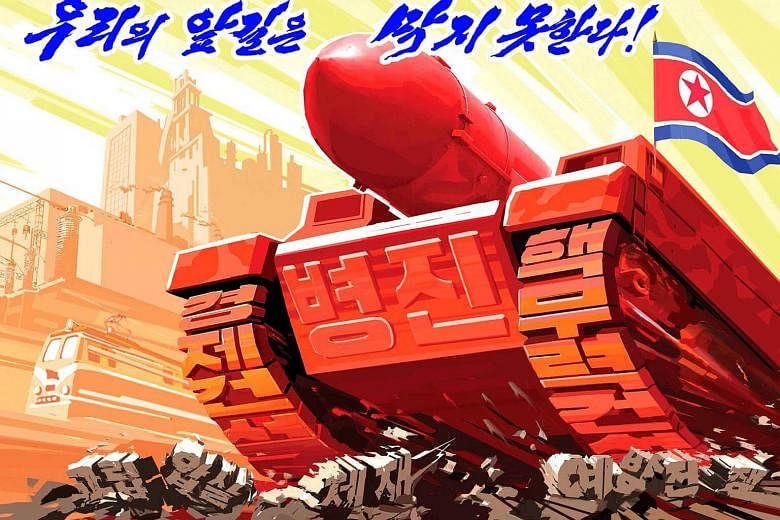SEOUL - For decades, North Korea's state-controlled media have produced what is now known as "fake news" for the ruling Kim dynasty.
In the North Korean media, news stories are made, not covered, said Chang Hae Seong. He was a former journalist for the North's Korean Central Television (KCTV) and is now a defector living in Seoul.
"While working as a reporter at the Division of Revolution I at the TV station, I dignified Kim Il Sung to elevate him to being the hero who saved the country," he said during a recent interview with Korea Times.
According to accounts in the North Korean media, the founder of the isolated country had the miraculous power to make bullets from sand dust, had the magical power to contract distances, and had crossed the Yalu River at the Chinese-North Korean border by riding on nothing but a withered leaf.
He died of cardiac arrest in 1994 and the leadership was passed to his son Kim Jong Il, the next person in the so-called Mount Paektu Bloodline.
"I did research on Kim to find stories. If I found even a speck of something positive about him, I would exaggerate it to recreate a whole story to portray him as a great leader," Chang said.
"There were five divisions within the state TV, including the Division of Revolution I, and like me, reporters there were ordered to make and report stories about the Kim family to justify their policies."
Chang joined the North Korean state media in 1976 after graduating from the Kim Il Sung University Department of Philosophy in the capital city of Pyongyang and worked there for 20 years, reported Korea Times.
Chang, now 73, said he got into trouble in the 1990s after he shared classified information about the Kim family with one of his co-workers.
He told his co-worker that North Korea, not South Korea, was the aggressor of the Korean War (1950-53) and that Kim Il Sung's son was not born in North Korea but in Russia in 1941, when the father was fighting for Korea's independence from Japan's colonial rule.
Chang told Korea Times he discovered this "forbidden truth" through his rigorous research about Kim Il Sung.
His co-worker unwittingly shared his remarks with other coworkers, which was detected by the security forces.
Chang defected to South Korea in 1996 to evade arrest from the security forces, reported Korea Times.
Chang also let on that Kim Jong Il held a tighter grip on state media than his father and demanded the broadcaster report every detail on its programmes.
"His father didn't care much about what programmes to air. So during his day, state television had some discretion regarding what kinds of programs to air and how," Chang said.
"But his son Jong Il was very different. He never allowed KCTV to broadcast any programs without his prior approval. We submitted our detailed programme schedules to him every Tuesday, and he himself would review every detail thoroughly and sent (the schedules) back to us with his comments and guidelines for us to follow."
According to Chang, North Korean state media's current policy was established during the Kim Jong Il era. His son Kim Jong Un, who took power in late 2011 following his father's death, has largely followed the guidelines set by his father.
Chang said that the media environment in the reclusive country has changed a lot since he fled the North in 1996.
Ordinary North Koreans now have greater access to news from foreign media. In the 2000s, some defectors worked together to provide fact-based news programmes for North Koreans. Today North Koreans can secretly tune their radios to listen to news from any of the several radio stations that specialise in news for residents in the North.
Some North Koreans even secretly watch South Korean movies and dramas through CDs, DVDs and USB sticks.
Starting next month (Sept), the British Broadcasting Corporation (BBC) will start broadcasting a 30-minute radio news programme for North Koreans.
Chang said such impartial foreign news services and South Korean entertainment programs have led the North Korean public to question the credibility of their own state media.
However, he was sceptical that the developments would trigger a change in the North.
"Everybody knows North Korea is wrong and South Korea is right," he said. "But we must know that believing is one thing and acting is another. As long as 'fear politics' continues, I think few North Koreans will be courageous enough to stand up against the repressive regime."

